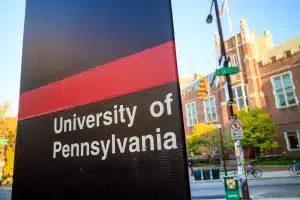UPenn Interview: Everything You Need to Know
The UPenn interview is an essential component of the college admissions process. As an applicant, you must understand everything you need to know about the UPenn interview and what they look for in their students.
Additionally, you can take steps to prepare yourself for the interview, present yourself effectively during the interview, and handle potential challenges that may arise. In this article, we will explore all these aspects to help you confidently navigate the UPenn interview.
Understanding the Purpose of the UPenn Interview
The UPenn interview allows the admissions committee to gather more information about you beyond what is presented in your application. It will enable them to assess your personality, communication skills, and fit for the university. Essentially, the interview allows you to showcase who you are as an individual and why you are a strong candidate for UPenn.
You can delve deeper into your experiences, achievements, and goals during the interview. This is your chance to give the admissions committee a more comprehensive understanding of your motivations, passions, and aspirations. They can gain insights into your thought processes, problem-solving abilities, and interpersonal skills by conversing with you.
The Role of the Interview in the Admissions Process
The interview is just one piece of the puzzle but can carry significant weight. It provides the admissions committee with a tangible connection to your application, allowing them to put a face and personality to the name on the paper. Your performance during the interview can positively influence the admissions decision and potentially sway it in your favor.
Furthermore, the interview allows the admissions committee to assess your fit for UPenn’s academic and social environment. They can gauge whether you will thrive in the rigorous educational programs, contribute meaningfully to the campus community, and embody the university’s values and culture.
What UPenn Looks for in Prospective Students
When conducting interviews, UPenn considers certain traits and qualities in prospective students. They value intellectual curiosity, leadership potential, community involvement, and a demonstrated interest in the field of study. UPenn also seeks students who will contribute positively to the campus community and establish a strong fit with the university’s values and culture.
During the interview, it is essential to highlight your intellectual curiosity by discussing your academic interests, research experiences, or any independent projects you have undertaken. Demonstrating your passion for learning and your ability to think critically and analytically will impress the admissions committee.
Additionally, UPenn values leadership potential. Sharing examples of how you have taken initiative, motivated others, or positively impacted your school or community is beneficial. Whether leading a club, organizing events, or volunteering, showcasing your leadership abilities will strengthen your candidacy.
Community involvement is another aspect that UPenn looks for in prospective students. Discussing your participation in extracurricular activities, community service, or volunteer work demonstrates your commitment to making a difference and your ability to engage with others. UPenn seeks individuals who actively contribute to the campus community and foster a sense of belonging.
Lastly, UPenn values students genuinely interested in their chosen field of study. During the interview, you can discuss your academic and career goals, research interests, or any relevant experiences that have solidified your passion for a particular subject. This will show the admissions committee that you are dedicated to your academic pursuits and have a clear vision for your future.
Preparing for the UPenn Interview
Preparation is critical to a successful interview. Take the time to research UPenn’s values, mission, and culture. Familiarize yourself with the programs and opportunities that align with your academic and extracurricular interests. This knowledge will enable you to articulate why UPenn is the right fit for you and how you can contribute to the university.
When researching UPenn’s values and culture, it’s essential to delve deep into the university’s website. Explore the different departments and schools, read about the faculty members, and note any recent research or projects that have caught your attention. By immersing yourself in UPenn’s online presence, you’ll better understand the university’s priorities and areas of focus.
Additionally, make sure to browse through UPenn’s social media channels. Follow their official accounts on platforms like Facebook, Twitter, and Instagram to stay up-to-date with the latest news and events happening on campus. This will not only give you a sense of the university’s vibrant community but also provide you with potential talking points during the interview.
Furthermore, don’t limit yourself to just UPenn’s official channels. Look for articles or publications about the university in reputable sources. These sources may provide insights into UPenn’s collaborations, partnerships, or groundbreaking research that you can discuss during the interview. Demonstrating that you’ve exceeded the surface level of information will impress the interviewer and show your genuine interest in UPenn.
Anticipating Common Interview Questions
While it is impossible to predict every question that will be asked during the interview, you can prepare for common interview themes. Reflect on your experiences, achievements, and motivations, and consider how they align with UPenn’s values.
Consider questions like:
- How have your past experiences prepared you for the academic rigor at UPenn?
- Can you provide an example of a time when you demonstrated leadership skills, and how would you apply those skills at UPenn?
- What specific academic or extracurricular opportunities at UPenn excite you the most?
By brainstorming and practicing answers to these questions, you’ll be better equipped to articulate your thoughts during the interview. It’s also helpful to practice answering questions aloud or with a friend to build confidence and ensure your responses are clear and concise.
Remember, the UPenn interview is an opportunity for you to showcase your unique qualities and demonstrate why you would be a valuable addition to the university’s community. With thorough research and preparation, you’ll be well on your way to a successful interview!
During the UPenn Interview
The moment has arrived—the UPenn interview. Here are a few tips to help you make a positive impression and effectively convey your strengths and passion for UPenn. Attending a college interview can be both exciting and nerve-wracking.
It’s a chance to showcase your unique qualities and experiences that align with UPenn’s values. But how can you present yourself effectively and leave a lasting impression?
Presenting Yourself Effectively
First impressions matter, so it’s important to dress professionally and arrive on time. Doing so demonstrates your respect and commitment to the interview process. Once in the interview room, maintain eye contact with the interviewer and actively listen. These non-verbal cues show your genuine interest and enthusiasm for the opportunity to study at UPenn.
When answering questions, be authentic, concise, and articulate. Take the time to think about your responses and focus on highlighting your unique qualities and experiences. This is your chance to showcase what makes you stand out from other applicants and why you believe UPenn is the perfect fit for you.
Asking Insightful Questions
Remember, the interview is not just an opportunity for the interviewer to learn more about you—it’s also a chance for you to gather important information about UPenn. This is where asking insightful questions comes into play.
Before the interview, take the time to research UPenn thoroughly. Familiarize yourself with the university’s programs, campus life, and recent achievements or initiatives. With this knowledge, prepare a list of thoughtful and well-researched questions that expand upon your understanding of UPenn and its offerings.
You demonstrate your genuine interest and engagement with UPenn by asking insightful questions. It shows that you have taken the time to delve deeper into what the university offers and are eager to learn more. Moreover, asking questions allows you to gather valuable information to aid your decision-making when choosing the right college.
Remember, the UPenn interview is an opportunity for you to shine. By presenting yourself effectively and asking insightful questions, you can make a positive impression and convey your passion for UPenn. Good luck!
Post-Interview Steps
Once you have completed the interview, there are a few essential steps to leave a lasting impression and maintain a positive relationship with UPenn.
First and foremost, it is essential to reflect on your interview experience. Take some time to jot down your thoughts and impressions while they are still fresh in your mind. Consider what went well and what areas you could improve in future interviews. This self-reflection will help you grow as an individual and prepare you for future opportunities.
Let’s dive into the first post-interview step: sending a thank you note. Within 24 to 48 hours of the interview, expressing gratitude to your interviewer is crucial. Craft a well-thought-out thank you note acknowledging their time and insight and highlighting specific aspects of the discussion that resonated with you. By doing so, you demonstrate your attentiveness and genuine interest in UPenn.
When writing your thank you note, remember to personalize it. Mention any memorable conversations or connections you made during the interview. This personalized touch will make your note stand out and leave a lasting impression on the interviewer.
Now, let’s move on to the next step: what to do while waiting for a response. After completing the interview, it is natural to feel anxious and eager for a reaction from UPenn. However, managing your expectations and focusing on what you can control is essential.
While waiting, one of the best things you can do is to maintain your academic performance. Stay committed to your studies and strive for excellence in your coursework. UPenn values academic achievement, and solid grades will only strengthen your application.
In addition to academics, continue your involvement in meaningful activities. Whether volunteering, participating in extracurricular clubs, or pursuing personal hobbies, staying engaged in activities you are passionate about demonstrates your commitment and well-roundedness.
It is also crucial to avoid constantly checking for updates. Continually refreshing your email inbox or logging into the applicant portal can lead to unnecessary stress and anxiety. Instead, channel your energy into productive endeavors. Focus on personal growth, explore new interests, or prepare for potential scholarship opportunities.
Remember, the admissions process takes time, and patience is vital. While waiting for a response, trust the admissions committee’s thorough evaluation process and believe in your abilities. Use this time to reflect on your journey and appreciate the progress you have made thus far.
Dealing with Potential Challenges
The UPenn interview may present challenges that can be overcome with the right mindset and preparation. When it comes to the UPenn interview, it’s essential to approach it with a positive attitude and a clear understanding of what you want to convey to the interviewer.
While it’s natural to feel a bit nervous before such an important meeting, there are strategies you can employ to overcome interview anxiety and present yourself in the best possible light.
Overcoming Interview Anxiety
Feeling nervous before an interview is entirely normal. To overcome interview anxiety, practice mock interviews alone and with a trusted friend or family member. This will help you become more comfortable with the interview format and allow you to anticipate and prepare for potential questions.
Additionally, take care of yourself by getting enough rest the night before the interview. A good night’s sleep can improve your mental clarity and overall well-being. Engaging in relaxation techniques, such as deep breathing exercises or meditation, can also help calm your nerves and center your focus.
Another helpful strategy is to visualize a positive outcome. Take a few moments each day leading up to the interview to imagine yourself confidently answering questions and impressing the interviewer. Visualizing success can boost your confidence and help you approach the interview with a winning mindset.
Remember, confidence comes with preparation and self-assurance. By putting in the time and effort to adequately prepare for the UPenn interview, you can alleviate some of the anxiety and present yourself as a confident and capable candidate.
Addressing Weaknesses in Your Application
Suppose your application has weaknesses or gaps, such as a lower grade or a lack of extracurricular activities. In that case, addressing them honestly and tactfully during the interview is essential. However, it’s crucial to strike the right balance between acknowledging your shortcomings and highlighting your strengths.
When discussing any weaknesses in your application, explaining the circumstances without making excuses is essential. Take responsibility for any shortcomings and emphasize personal growth, lessons learned, and how you have taken steps to address any academic or extracurricular shortcomings.
Show resilience and determination in overcoming obstacles, as UPenn highly values these attributes. Highlight any additional experiences or achievements demonstrating your commitment to personal and academic growth. This will show the interviewer that you are proactive and can learn from your mistakes.
By addressing potential challenges head-on and showcasing your ability to overcome them, you can demonstrate your true potential and increase your chances of becoming a successful UPenn student.
Conclusion
By understanding the purpose of the UPenn interview, adequately preparing, and effectively presenting yourself, you can confidently navigate the interview process. Remember to follow up with a thank you note expressing gratitude for the opportunity to interview and reiterating your interest in attending UPenn. Finally, maintain patience while awaiting a response, as the admissions process can take time.
Remember, the UPenn interview is an opportunity for you to showcase your unique qualities and demonstrate why you would be a valuable addition to their community. By approaching the interview with a positive mindset and addressing potential challenges head-on, you can increase your chances of success and make a lasting impression on the interviewer.
Your Next Steps: Master the UPenn Interview with AdmissionSight
By now, you’ve got everything you need to know about the UPenn interview right at your fingertips. But learning is just the first step; flawless execution sets you apart. If you’re feeling overwhelmed, remember—you don’t have to go it alone.
At AdmissionSight, we specialize in turning your college admission dreams into reality. Our seasoned experts are masters in all things concerning UPenn and other Ivy League admissions. From intricate interview techniques to personalized coaching, we offer you everything you need to know about the UPenn interview, distilled into actionable insights.
Why take chances when you can opt for assured success? Schedule a one-on-one consultation with us and get personalized guidance tailored just for you. With AdmissionSight, you’re not just preparing for an interview but gearing up for a successful future.
Don’t leave your UPenn dreams to chance. Equip yourself with everything you need to know about the UPenn interview by choosing AdmissionSight. Let us guide you through each step, ensuring that your journey to UPenn is as smooth as it is successful.










































